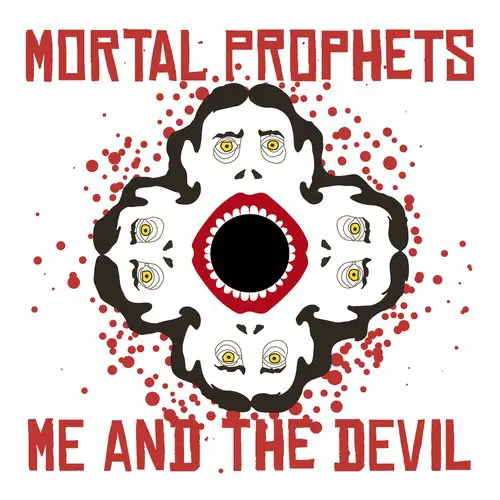NYC’s Mortal Prophets have released five singles ahead of their album, Me and The Devil, which is set for release on December 9. The songs – all covers – teeter between Leonard Cohen and Nick Cave, and bring something completely new to the table.

“Pretty Girl In The Pines” is an adaptation of the folk classic by Lead Belly and a famous performance of “Where Did You Sleep Last Night,” was covered during Nirvana’s MTV Unplugged concert. In the Mortal Prophet’s version, it starts as an eerier version of Lead Belly’s, but drops into German electronica house, then introduces searing electric guitar. This amalgamation of genre electrifies, aptly, some of the oldest songs in our American folk canon.
The stirring bluesy sound in these singles feels alive, because it is. In making this debut EP, Mortal Prophets’ lead John Beckmann sent his rough tracks to William Declan Lucey, an Irish producer and multi-instrumentalist and member of Rubyhorse. Beckmann entrusted Lucey with the task of adding or subtracting tracks from Beckmann’s raw files to the album, and this collaboration between the two artists led to some of the more surprising and exciting moments — Dana Colley’s saxophone on “Baby Please Don’t Go,” for one, gives the song transformative capacity.
There’s anger that’s jutting out behind gritted teeth in “Grinning In Your Face.” Beckmann gets to the core of the legendary Son House original. “It’s really a song of betrayal, and back stabbing, yet the musician rises above it all, and laughs in their faces, and continues his life undeterred. I think we can all relate to that on some level,” Beckmann said about his cover.
“Crossroad Blues” feels most like a Nick Cave song, gothic and earnest. Music writers say things like, “John Beckmann’s vocals shine on this record,” but Beckmann’s voice doesn’t “shine.” It’s totally matte, deep and dark, but with low opacity, like he’s singing through fangs bared — a voice that can be brutal, ravenous, in “Grinning In Your Face,” but here it is ultimately deeply mournful, loathing, that masculine kind of somber, you know, blue.


Comments are closed.